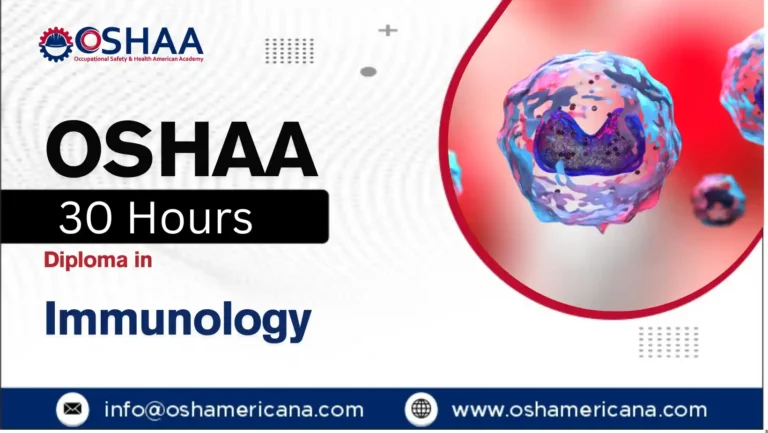Pharmacotherapy is a cornerstone of modern healthcare, playing a crucial role in the treatment and management of a wide range of medical conditions. The OSHAA 30-Hours Professional Diploma in Pharmacotherapy offers a concise yet comprehensive introduction to the principles of safe, effective medication use, tailored for professionals and aspiring healthcare practitioners. This course is designed to equip learners with the knowledge and confidence to apply pharmacological principles in clinical, academic, or research-based settings.
In today’s evolving healthcare landscape, a sound understanding of pharmacotherapy is essential for ensuring optimal patient outcomes. This diploma provides learners with a detailed exploration of drug classifications, mechanisms of action, therapeutic uses, side effects, and interactions. The course structure supports the development of practical skills and theoretical knowledge, helping professionals make informed, evidence-based decisions in their roles.
The OSHAA 30-Hours Professional Diploma in Pharmacotherapy is ideal for a broad audience including pharmacy technicians, nursing professionals, medical students, care workers, and healthcare assistants. It is also suitable for individuals pursuing further studies in medicine, pharmacy, or health sciences who need a foundational understanding of pharmacotherapy.
The OSHAA 30-Hours Professional Diploma in Pharmacotherapy offers a valuable opportunity for healthcare professionals and learners to deepen their understanding of medication use in clinical practice. With its focused curriculum and flexible learning model, this course empowers participants to apply pharmacological knowledge responsibly and effectively in diverse healthcare settings.
OSHAA 30-Hours Professional Diploma in Pharmacotherapy
Study Units
Learning Outcomes
Introduction to Pharmacotherapy and Drug Classifications (3 Hours)
- Understand the principles and objectives of pharmacotherapy in clinical practice
- Identify major drug classifications and their therapeutic uses
- Recognise key terminology used in pharmacological contexts
- Describe the role of pharmacotherapy in disease management
Pharmacokinetics: Absorption, Distribution, Metabolism, and Excretion (5 Hours)
- Explain the processes involved in drug absorption, distribution, metabolism, and excretion
- Understand how pharmacokinetic principles influence drug dosage and frequency
- Identify factors that affect drug bioavailability and clearance
- Apply pharmacokinetic concepts to case-based scenarios
Pharmacodynamics and Mechanisms of Drug Action (5 Hours)
- Describe how drugs interact with receptors and other molecular targets
- Understand the dose-response relationship and therapeutic index
- Differentiate between agonists, antagonists, and other drug-receptor interactions
- Analyse how drug action results in physiological and therapeutic effects
Medications for Cardiovascular and Respiratory Disorders (3 Hours)
- Identify commonly used drugs for conditions such as hypertension, heart failure, asthma, and COPD
- Understand mechanisms of action and clinical applications of cardiovascular and respiratory medications
- Recognise contraindications and monitoring requirements for these drug classes
- Discuss potential side effects and patient counselling points
Pharmacotherapy in Infectious Diseases and Antimicrobial Stewardship (3 Hours)
- Understand the principles of antimicrobial therapy and drug selection
- Identify major classes of antibiotics, antivirals, and antifungals
- Explain the importance of antimicrobial stewardship in preventing resistance
- Apply appropriate use of antimicrobials in clinical scenarios
Drugs Affecting the Central Nervous System (3 Hours)
- Recognise therapeutic uses and mechanisms of CNS-acting drugs, including antidepressants, antipsychotics, and analgesics
- Understand the clinical implications of CNS drug side effects and interactions
- Discuss considerations in prescribing and monitoring CNS medications
- Analyse case studies involving neurological and psychiatric conditions
Endocrine and Gastrointestinal Pharmacotherapy (3 Hours)
- Identify medications used for diabetes, thyroid disorders, acid reflux, and inflammatory bowel disease
- Understand hormonal regulation and how drugs modulate endocrine function
- Recognise the mode of action and side effects of GI and endocrine drugs
- Apply treatment guidelines to common endocrine and gastrointestinal conditions
Adverse Drug Reactions, Interactions, and Contraindications (5 Hours)
- Define and categorise types of adverse drug reactions
- Identify common and clinically significant drug-drug and drug-food interactions
- Understand how to minimise and manage risks associated with polypharmacy
- Apply best practices in clinical decision-making to avoid contraindications and ensure patient safety
- Build a Strong Foundation in Pharmacotherapy
Master key concepts such as drug classifications, mechanisms of action, and pharmacokinetics to understand how medications work in the body. - Improve Patient Care and Safety
Learn to identify and manage adverse drug reactions, interactions, and contraindications to enhance patient safety and therapeutic effectiveness. - Apply Evidence-Based Pharmacological Knowledge
Gain confidence in using current clinical guidelines and research to optimize drug therapy in various healthcare settings. - Prepare for Diverse Healthcare Roles
Equip yourself with relevant skills and knowledge for careers in pharmacy, nursing, medical fields, or healthcare support roles. - Support Antimicrobial Stewardship and Responsible Medication Use
Understand principles of antimicrobial therapy and resistance prevention to contribute to global health initiatives. - Flexible Learning Tailored for Busy Professionals
Complete the diploma through a focused 30-hour curriculum designed to fit alongside your existing commitments. - Enhance Career Progression Opportunities
Strengthen your resume with a recognized professional diploma that opens pathways to advanced studies or specialized healthcare roles.
- Pharmacy Technicians seeking to deepen their understanding of medication therapy and enhance their professional skills.
- Nursing Professionals aiming to improve safe medication administration and patient care outcomes.
- Medical Students looking for a solid foundation in pharmacotherapy to support their clinical training.
- Healthcare Assistants and Care Workers who want to gain essential knowledge about medications and their effects.
- Aspiring Healthcare Practitioners preparing for roles in clinical, academic, or research environments involving pharmacological treatment.
- Individuals Pursuing Further Studies in medicine, pharmacy, or health sciences who require a comprehensive introduction to pharmacotherapy principles.
- Anyone Interested in Medication Management and safe, evidence-based drug use in healthcare settings.







